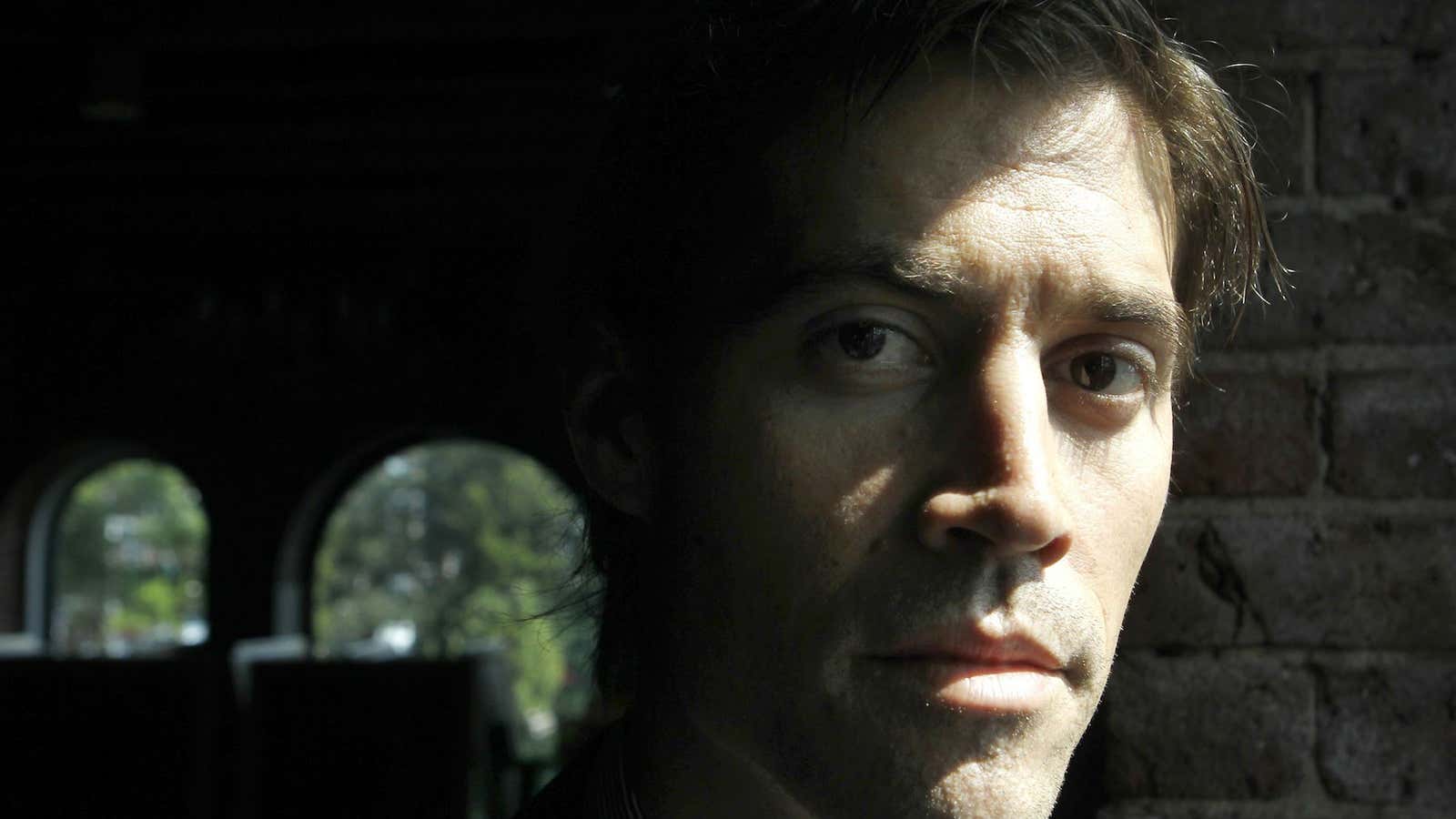James Foley, a journalist who disappeared in Syria nearly two years ago, has reportedly been murdered by members of the Islamic State in Iraq and Syria.
ISIS members posted a video online Tuesday that they claim depicts Foley’s execution. The National Security Council is still working to authenticate the video, CNN reports.
Foley’s mother Diane released a statement Tuesday night on a Facebook page dedicated to the journalist. Here it is in full:
We have never been prouder of our son Jim. He gave his life trying to expose the world to the suffering of the Syrian people.
We implore the kidnappers to spare the lives of the remaining hostages. Like Jim, they are innocents. They have no control over American government policy in Iraq, Syria or anywhere in the world.
We thank Jim for all the joy he gave us. He was an extraordinary son, brother, journalist and person. Please respect our privacy in the days ahead as we mourn and cherish Jim.
Captured in November 2012, Foley, 40, was an accomplished journalist who documented the complexity of the wars in the Middle East and Afghanistan and told the stories of those affected by it—humanizing and explaining subjects for an audience far removed.
Here is some of the work for which Foley risked—and likely lost—his life.
Editor’s note: Due to technical difficulties, all videos begin playing immediately upon landing on the page. They can be paused and watched in sequence.
[protected-iframe id=”1542943b0e684172418c4fbd1cf2d09c-39587363-51034579″ info=”http://video-svc.globalpost.com/plugins/player.swf” width=”670″ height=”375″]
Foley interviews American soldiers about the fine—and often frustrating—line they walked in Afghanistan as they faced off against enemy combatants while simultaneously trying to win over a civilian population.
[protected-iframe id=”a04dbd804b62f3f38c0b34923877e9f8-39587363-51034579″ info=”http://video-svc.globalpost.com/plugins/player.swf” width=”670″ height=”375″]
He also wrote, penning a piece for the Global Post in which he interviewed soldiers fighting a losing battle on behalf of former Libyan dictator Muammar el-Qaddafi. “Defected and captured loyalist soldiers said there are a number of factors motivating their former comrades, including the hope of financial reward and a fear of civil war. But the paramount reason to keep fighting, they said, is the fear of reprisals,” Foley reported.
Foley was captured in Libya in 2011 and spent several weeks in captivity. He discussed his experience, recalling the feeling of helplessness during captivity and the sadness he felt over the death of one of his colleagues.
Foley also discusses the draw of war reporting, both for the adrenaline of the experience and the desire to get a story that would otherwise go untold:
[protected-iframe id=”b39058b672d4ed782672165417000bef-39587363-51034579″ info=”http://video-svc.globalpost.com/plugins/player.swf” width=”670″ height=”375″]
“It’s a struggle because there is always that allure for some people of combat. There is always that sort of high of being close to combat … and then being able to come back and tell that story.”
Stephanie Stamm and Reena Flores contributed to this article.
This post originally appeared at National Journal. More from our sister site:
What a Getty photographer captured before he was arrested in Ferguson




